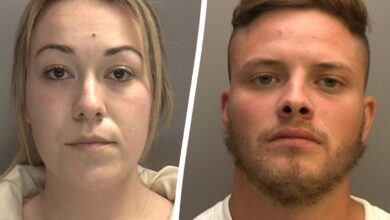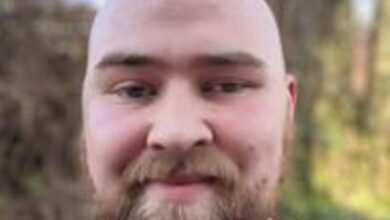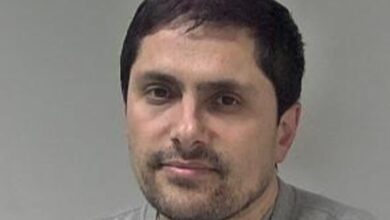Vulnerable Black mental health patient checked once in 14 hours, inquest finds

A Black mental health patient who died from a heroin overdose in hospital was examined just once in 14 hours despite an order saying he should be constantly checked, an inquest has found.
Rullson Warner, 45, from North London died on 9 March 2020 after consuming illicit drugs while a detained mental health patient at St Ann’s Hospital in Tottenham, north London.
An inquest at North London Coroner’s Court identified serious failures including a lack of medical observations, and the failure of hospital staff to provide crucial, timely CPR when he went into cardiac arrest.
Staff downgraded his observation levels from constant to every 15 minutes, without consulting a doctor as required, the court heard, while many observations of Mr Warner were recorded but never actually took place.
Despite being a detained patient, Mr Warner was somehow able to access and inhale heroin, before he fell unconscious, which went almost unnoticed for 14 hours, and passed away.
Carl Rix of Fosters Solicitors LLP, who represented Mr Warner’s family, said: “Rullson was admitted to St Ann’s as a place of safety. He was a vulnerable patient who needed to be protected. The fact that he was able to obtain illicit drugs on the ward despite his history demonstrates to the family that the preventative measures in place at the time were ineffective.
“It was a privilege to represent Rullson’s family in this case who have shown tremendous courage throughout this period not just with the aim of obtaining justice for Rullson, but also to ensure no other families are put through what they have been.”
On 26 February 2020 Mr Warner’s mother, Jurina Ikoloh, became concerned about his mental welfare and he was admitted to St Ann’s Hospital which is run by Barnet, Enfield and Haringey Mental Health Trust.
Upon arrival, Mr Warner said he had taken illicit drugs in recent days and weeks. A risk assessment was undertaken, which included documenting previous incidents of him accessing drugs on the ward. Despite this, he was never monitored in relation to this risk.
The following week, Ms Ikoloh contacted the ward on three occasions to express concerns that Mr Warner intended to access drugs while still a patient. Despite documenting this in the records, there was no update to his risk assessment, nor did staff seek to establish whether he had access to drugs.
On 4 March 2020, he was formally detained under section 5 (2) of the Mental Health Act – a short term detention for assessment. This was upgraded the following day to a section 2, which is formal detention for further assessment and treatment for up to 28 days.
Mr Warner was also put into a seclusion room from that date until 7 March 2020. After being was searched on entry, no illicit drugs were found. He was then reviewed by a consultant psychiatrist and placed back on to the ward.
It was then decided that a doctor should check on Mr Warner every minute. However, his observations were reduced to every 15 minutes. The inquest heard that this decision was made without a doctor’s permission, for reasons unknown, in what was a breach of protocol.
The inquest was shown CCTV footage from 4.37pm on 8 March of Mr Warner sitting in a chair in the communal area, holding a wooly hat and bringing it close to his face. The jury concluded that it was possible he inhaled the heroin at this point.
He remained on the chair for over 14 hours and CCTV footage showed he barely moved during this time and that none of the many 15 minute observations which were recorded in Mr Warner’s medical records, and signed off by staff, were actually performed.
The footage suggests that during this period Mr Warner was only properly observed once by a nurse who touched the patient’s shoulder at 8.46pm, but he did not wake up or stir. The following morning, at 6.42am, he awoke and unsteadily walked across the communal area before collapsing.
Ms Ikoloh said: “The last two years have been incredibly difficult without Rullson, and the need to obtain justice for him has weighed heavily on my shoulders.
“I was shocked to hear some of the evidence that arose during the inquest. In particular, the fact that staff did not seek permission from a doctor before reducing Rullson’s observation levels, and the fact that none of his regular 15 minute observations were performed overnight despite these being recorded. I only hope that measures will be put in place to prevent such a tragedy from occurring again.”
Black people in Britain are four times as likely to be sectioned than white people, and Mr Warner’s case has sparked renewed calls for this disparity to be urgently addressed to avoid more deaths taking place.
‘The last two years have been incredibly difficult without Rullson, and the need to obtain justice for him has weighed heavily on my shoulders,’ Jurina Ikoloh, mother of Rullson Warner, said





